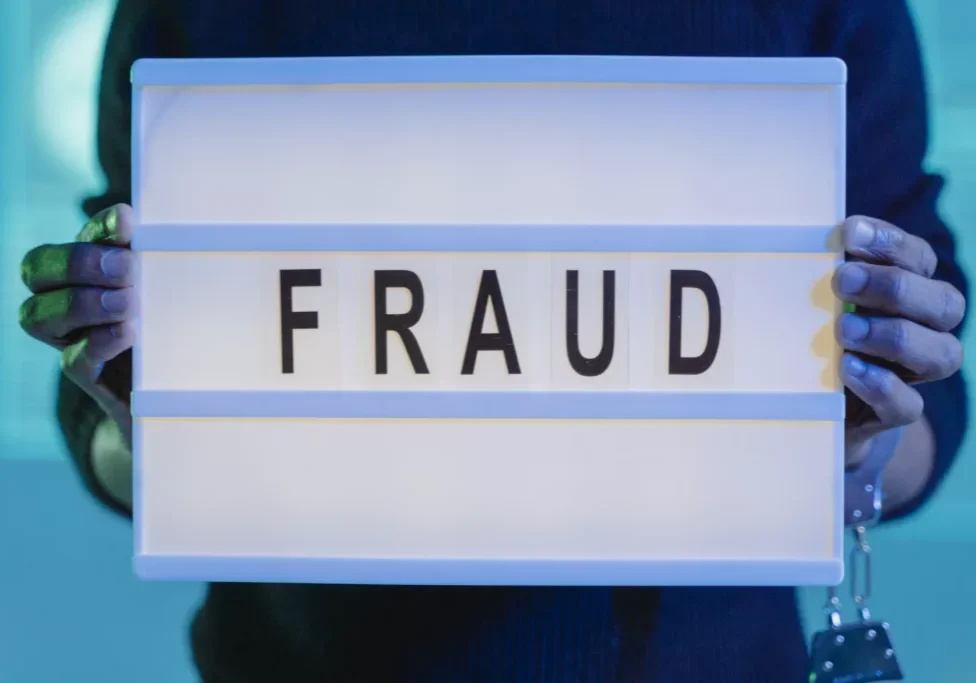
Don't Get Taken Advantage Of: How to Spot & Combat Online Fraudsters
Embrace the convenience of the digital age, but beware of the lurking dangers. From online shopping to social media and digital banking, our lives have become more accessible in many ways. However, with the rise of cyber criminals, staying vigilant and informed about the evolving online scams is crucial. This article explores common scams and offers practical advice to ensure your safety in the digital era. Follow some simple steps, protect yourself, and confidently navigate the digital world. Bear in mind that your credit card does offer some protection.
How to protect yourself from malicious email attacks
Be wary of phishing attacks, a type of scam where criminals pretend to be trusted organisations like banks, government agencies, or popular websites to steal valuable information such as passwords or credit card details. It's crucial to stay alert and avoid falling victim to these deceitful tactics. Phishing emails can be hard to spot because they often look legitimate, with logos, branding, and links that appear authentic. However, you can recognise phishing emails by looking for signs like spelling mistakes, suspicious URLs, and requests for information that legitimate organisations wouldn't ask for.

To protect yourself from phishing attacks, be cautious when you receive unsolicited emails or messages from unknown sources. Don't click on links or download attachments from suspicious emails, and don't provide any sensitive information unless you can verify that the request is genuine. If you receive a suspicious email, report it to the organisation it claims to be from or the appropriate authorities if it's a phishing scam.
Avoid online shopping scams
Beware of online shopping scams, where dishonest sellers may offer fake or non-existent products. These scams can be cleverly disguised with professional-looking websites and fabricated customer reviews. However, there are tell-tale signs to be wary of, like extremely low prices, a lack of contact information, or unsafe payment methods.
To protect yourself, thoroughly research the seller or website before purchasing. Look for genuine customer reviews, check for contact information and physical addresses, and opt for secure payment methods like credit cards or PayPal. If you're uncertain about a seller or website, it's safest to refrain from purchasing. If you believe you've fallen victim to a scam, reporting it to the appropriate authorities is crucial.
Get smart and stay safe: Avoiding investment frauds
Beware of investment scams that promise high returns on stocks, cryptocurrencies, or property investment. In reality, many of these opportunities are totally fraudulent, leaving investors empty-handed. One common scam is the Ponzi scheme, where new investors' money is used to pay off older investors, giving a false sense of profitability.
To protect yourself, be cautious of unsolicited investment offers that guarantee high returns without risk. If needed, take the time to thoroughly research any company or investment opportunity and seek guidance from a financial advisor. Never invest money you can't afford to lose, and be sceptical of any opportunity that seems too good to be true.
Online dating scams
Romance scams are a serious issue. Scammers often pretend to be potential partners on dating websites or social media and exploit their victims by gaining their trust. They may trick victims into giving them money or personal information by making up reasons like travel expenses or medical emergencies. These scams can be challenging to detect as scammers create fake profiles and use fake photos to seem legitimate.
To protect yourself from romance scams, exercise caution when communicating with people online, especially if you haven't met them in person. Please pay attention to any inconsistencies in their stories or profiles and be wary of requests for money or personal information.
How to avoid Tech Support scams
Tech support scams involve imposters pretending to be representatives from reputable companies like Microsoft or Apple and asserting that your computer or software has an issue. These scammers may utilise phone calls, emails, or pop-up messages to deceive you into granting them remote access to your computer or downloading software that claims to fix the problem. However, once they gain access, they can install malware or other harmful software to steal sensitive personal information, such as passwords and credit card details.
To safeguard yourself against tech support scams, exercise caution when receiving unsolicited phone calls or messages from individuals claiming to be tech support representatives. Legitimate companies will not reach out to you through these means unless you have specifically requested their assistance. Refrain from granting remote access to your computer to individuals you are unfamiliar with or do not trust, and avoid downloading or installing software that raises doubts. If you suspect a tech support scam has targeted you, report it to the appropriate authorities and seek advice from a reputable tech support provider.
Identity theft is more common than you think
Identity theft is a serious crime with lasting consequences for your finances and well-being. It occurs when someone steals your personal information, like your name, address, social security number, or credit card details, and uses it to commit fraud, such as opening bank accounts or applying for loans in your name.
Data breaches are a common way personal information gets stolen. Hackers gain unauthorised access to a company or organisation's database, often due to security system vulnerabilities. This stolen data can be used for identity theft or sold on the dark web to other criminals.
Safeguard your personal information to protect yourself from identity theft and data breaches. Use strong and unique passwords for your online accounts, exercise caution when sharing personal information online or through email, and regularly monitor your credit report for any suspicious activity.
Take immediate action if you suspect your identity has been stolen or your personal information compromised in a data breach. Contact your bank or financial institution to report the fraud, block any further transactions, and report the scam to the police. Consider freezing your credit card to prevent additional fraudulent activity and seek guidance from a reputable identity theft protection service.
Are you due a Refund or Compensation?
You may have been subject to unfair practices
You may be due compensation

Are you due a Refund or Compensation?
You may have been subject to unfair practices
You may be due compensation

Are you due a Refund or Compensation?
You may have been subject to unfair practices
You may be due compensation
Are you due a Refund or Compensation?
You may have been subject to unfair practices
You may be due compensation
